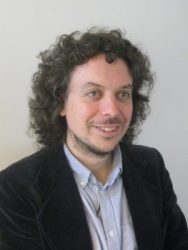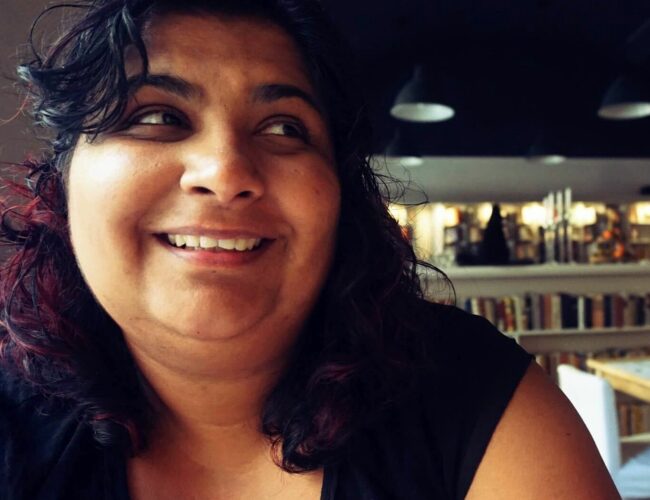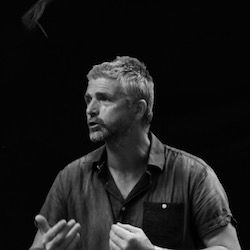a space to reflect on our activism, to ask transformative questions, and to find deeper inspiration and understanding for building wider alliances.
Ecology of Social Movements is a training for experienced activists and organisers from across Europe. The course focuses on thinking and acting at the movement level rather than at the level of individual change makers or single organisations. It explores how our groups and networks relate to the wider ecology of change within our movements. Participants will engage in deep analysis of their own activist practice and context, gaining skills and understanding to make their organising more powerful for systemic change.
We are living in a time of multiple crises, in the presence of both great threat and potential. Neoliberal economic growth and traditional political models are in crisis, with a rising far right, growing inequality and violence, and intensifying ecological devastation. For the worst to be prevented and for something new to grow from the cracks of the old, our efforts to contest the future and build strategic alliances are crucial.
As in the natural world, our organisations exist within a much wider ‘movement ecology’ which includes many different networks and ways of taking action, multiple histories and different ways of showing up, in many different places. Understanding ourselves in this wider context helps us to think more clearly about our specific contributions, what others offer, and what wider possibilities might exist. We will explore our own movement practice and ecologies to develop creative strategies for social transformation.
All too often there is a huge gap between the scale of the problems we are responding to and the limits of a single organisation. At times we may see that, though the actions we have taken hold some importance, still they do not achieve the effects we want or expect. All this can lead us into loss of hope, cynicism or burnout. Ecology of Social Movements helps us to find strategic ways forward – to strengthen resilience for hard times and difficult places, to rethink our organisations’ situation and tactics, find unexpected allies, explore new initiatives, think differently about movement strategy – and be in a space with others that deeply honours that we cannot do everything on our own.
How can we develop more powerful and effective alliances, across different organisations, social situations, places and issues that can allow us to genuinely change the situation and win against powerful opposition? How can our own organisations become more effective as part of a wider whole? And how can we find a path to social change grounded in solidarity, cooperation and creativity, despite our differences?
We will explore:
Learning from each other’s struggles
This course uses carefully chosen tools and theories that we have found are highly useful for organisers in supporting their work to become more effective, better networked and able to contribute to deeper social change. The course supports a shared process of deepening reflection and learning in a community of exploration. Orientating in this collective, strategic way, sits beside a commitment to emancipatory and radical learning. With the experience and knowledge we bring from this strand of our work, we hold the course design in a flexible and responsive way, focusing on shaping content for participants’ learning needs and creating space to hear and learn from one another.
Importantly, this enables us to learn from each other’s struggles. We don’t have to rely only on limited experience within our single organisations, or indeed mainstream sources, to support our problem solving. Course participants and trainers bring a rich and wide variety of movement experience and possibilities into the room. When we spend proper time with our peers from different movements, countries, social situations and traditions, and really listen, we can learn a huge amount about the choices for how and why to organise in the ways we do. We get perspective on our own approaches and build our capacities to work more effectively across our many differences and across distance.
Who is it aimed at?
Anyone involved in socially engaged action addressing ecological, political and social justice issues. We embrace a broad definition of activism, including: Resistance – action preventing further damage to ecosystems and social justice; Renewal – action focused on developing and creating alternatives for healthier societies and communities; and Building Resilience – action supporting increased resilience in communities to weather the uncertain times ahead.
Participants should:
The main spoken language on the course will be English.
Preparation and follow-up
The course is designed to include a bit of preparatory work – collecting some materials from your organisations/movements and reflecting on key strategic problems. Post course, there will be the option to join a forum with other course participants to support good follow-up and continue sharing experience as we carry our learning back into our day to day work.
For accessibility and venue information see here.
In the solidarity economy:
(See details of our approach to radical economics here)
Contact us
to apply

Location:
Hilal Demir, an anarcha-queer DJing at home is an activist, trainer, facilitator for 20 + years and has experience on organizing, strategizing on nonviolent direct action, campaign and social movement levels, working with power, active solidarity, resilience, repression and security. She is passionate about leading informal learning experiences, community organizing, group dynamics and organisational cultures, supporting activists and organizations to build long lasting transformative social movements for a just future.

Location:
Laurence is a Dublin-based writer, teacher and activist, and one of Europe’s best-known social movement researchers. He’s been in many different movements starting with anti-war and anti-apartheid activism in the 1980s, including helping organise the anti-capitalist “movement of movements” in Ireland, media spokesperson for a summit protest, resisting Shell, networking between movements and parties, alternative schools and kindergartens, co-running a Masters for activists, helping organise a Zapatista tour and editing several radical publications, most recently the activist-researcher social movement journal Interface. In his day job as a researcher, he’s written or edited a dozen books as well as lots of free stuff which you can find here. Once he was a street musician but now prefers plumbing wood-fired hot tubs in a field for Buddhist camping retreats.

Location:
Jana is a facilitator, activist and organiser dedicated to creating transformative learning spaces and building capacity to collaboratively strategise for system change. With a background in education, she has a passion for critical and experiential pedagogy and research interest in how social movements learn and engage in counter-hegemonic knowledge production. Organising in different networks across the Netherlands, Spain, Belgium, the UK, and Germany, she is an adventurer of coalition building and practioner of transnational activism. Drawing from experience in the social and climate justice movement, she recently coordinated the programme for People’s Summit with the COP26Coalition and now works with European Alternatives and the School of Transnational Organizing. Keeping it up with the grassroots; Berlin based.

Location:
Sharmeen Khan is an organizer, trainer and writer based in Toronto, ON – on the traditional territories of the Mississaugas of the Credit covered by Treaty 13. She has been organizing and training since the late 1990s and has led hundreds of workshops in anti-oppression, direct action, media skills, financial management and facilitation. She is passionate about radical, alternative media and was active in community radio stations for 15 years. She is a former fellow with Training for Change’s Judith C. Jones Fellowship of Colour and also received training from Ruckus, Greenpeace and Emergent Strategy Training with Adrienne Maree Brown. She most recently completed the Movement Learning Catalyst program in 2024.She is currently an organizer with No One Is Illegal – Toronto and is also on the editorial collective of Upping the Anti : A Journal of Theory and Action. She also coordinates the training collective in Toronto called Tools for Change – an activist based training series that aims to give hard skills to new organizers.. She currently works at a small union local with the Canadian Union of Public Employees and her waged labour is mostly as a bookkeeper when she isn’t training. Sharmeen really likes to nerd out on theory and hopes activists can contribute more to theoretical understanding and analysis of our movements. She is passionate about recording and reflecting on social movements in print or audio. She is also passionate about real conversations about oppression and identity that go beyond performativity to making real relationships of solidarity and liberation.

Location:
G has been involved in social movement organising and education since the late 1980’s. He is a highly regarded trainer and has designed numerous training programmes covering areas such as psychosocial resilience in activism, the ecology of social movements, and leaderful organising. As a founding member of the Ulex Project, he is known for highly innovative work blending pedagogical methodologies. This holistic approach to activist learning has inspired numerous training initiatives across Europe. He currently steers the strategic development of the Ulex Project and its social movement capacity building programme.

Location:
An Maeyens (she/her) is a facilitator and trainer with over two decades of experience in grassroots movements. She specialises in creative, inclusive agenda design and brings deep expertise on group culture, power dynamics, and transformative learning. Starting of in the anti-globalisation movement she has trained thousands in civil disobedience, supported international coalitions, and developed multilingual training programmes and toolkits. Her work spans movements, cultures, and countries, guided by a commitment to care, accessibility, and leaderful organising.

Location:
Ari’s activism began in 2002, at age 16, as a Bosnian refugee in Canada, where they founded and coordinated a group for LGBTIQ high school students and allies. They were a co-founder and leader at kolekTIRV in Croatia and Trans Network Balkan, involved in community organizing, advocacy, program management, team coordination, capacity building, education, media work, campaigns, events, fundraising, etc. In 2024, they joined the Supervisory Board of the Croatian Trade Union Collective of United Precarious Workers and Activists (SKUPA).
Beyond the Balkan region, Ari served as a Board member at Transgender Europe (TGEU), where they held roles as Secretary, Treasurer, and later Co-chair. They have also been a trainer with the Center for Artistic Activism and served on the Advisory Committee and since 2022 as a Community Care Facilitator at FRIDA — The Young Feminist Fund. Since 2024 they are the Operations Manager at Global Philanthropy Project.

Location:
Sergio (all pronouns) was born in Romania and migrated to Germany in the early 2010s. In the past, he was a social worker with homeless people and a social consultant for Eastern European migrants for various organisations. Trained as a filmmaker, he spent two years making a documentary about the ‘civic reawakening’ in Romania and the waves of protest it brought with it. In connection to this, Sergio is currently co-steering the development of an online open-source participative knowledge production platform on activism in Romania. Over the past nine years, Sergiu has offered his skills to various journalists, grassroots collectives and campaigns, mostly working within the labour rights, climate justice, international solidarity and anti-authoritarian movements in Germany and Romania. Nonetheless, his biggest focus since 2020 has been his work as an organiser with the anarcho-syndicalist Free Workers Union, where he focuses mostly on organising Romanian migrant workers on construction sites, in factories and in the agricultural field.

Location:
Linzy Na Nakorn is a movement director, politicised somatics practitioner, community organiser and facilitator. For the past decade she has been facilitating movement, body work and creating theatre, dance and participatory performance that advocates for and organises with communities in pursuit of housing, disability and racial justice. Her movement practice focuses on trauma-informed approaches to building resilience, capacity and joy via way of the body for personal, interpersonal and community sustainability. Linzy was a Co-Director of The Big Ride for Palestine in partnership with The Gaza Sunbirds, Native Woman Ride and Middle East Children’s Alliance; using cycling as a tool for mobilising active solidarity and in support of campaigning for the rights and self-determination of the Palestinian people. Linzy is part of a UK network of activists and artists advocating for Radical Care – supporting organisations, researchers and institutions to work towards system change in societal approaches to labour, leadership and access.

Location:
Jeroen (he/him pronouns) has been involved in grassroots social movements for more than two decades now, starting back when he was fifteen. Throughout the years the fights for “climate justice” and “migrant justice” have been consistently on top of the list of struggles that make his heart beat faster. A key transformative moment for Jeroen was reading Paulo Freire’s Pedagogy of the Oppressed. Freire’s revolutionary pedagogy gave him a language to support the creation of emancipatory learning environments, rooted in a desire for collective liberation. Jeroen has also been exploring in depth Boal’s Theatre of the Oppressed and Joanna Macy’s The Work That Reconnects among other methodologies to build his trainer’s toolkit. Inspired by the liberatory possibilities of these traditions, he started an organization with a friend, LABO vzw, based in Belgium, where he has worked as a trainer and campaigner between 2013 and 2023.

Location:
Ella brings more than 10 years’ external experience working with not for profit and community based organisations across diverse themes including: advocacy for migrant communities; local community engagement in national policy making; and structural relationships between poverty and disenfranchisement, and education and poverty. Immersed in critical theory in her early 20s she brings a holistic and questioning approach, and is passionate about systemic solutions that centre relationship and interconnection between ecology and society. A long standing member of the collective, Ella has been part of the core team since the inception of the Ulex Project. Her work bridges facilitation, developing project partnerships, governance, strategy, operations, and project and programme evaluation. She has developed and overseen more than 70 partnerships with a range of different actors across European social movements.
Ulex: Latin (argelaga Catalan, gorse English) noun:
1. A thorny-evergreen flowering shrub, with a high capacity for regeneration and resilience. Its seedpods open in contact with fire and it reshoots from charred stumps. A successionary plant that grows well under challenging conditions. It improves soil fertility through nitrogen fixing, preparing the way for renewed biodiversity.
2. A traditional choice for igniting fires. Burns hot and bright.
3. A networked project adding nutrition and fertility to European social movements through training and capacity building. It kindles the realisation of social justice, ecological intelligence, and cognitive vitality.